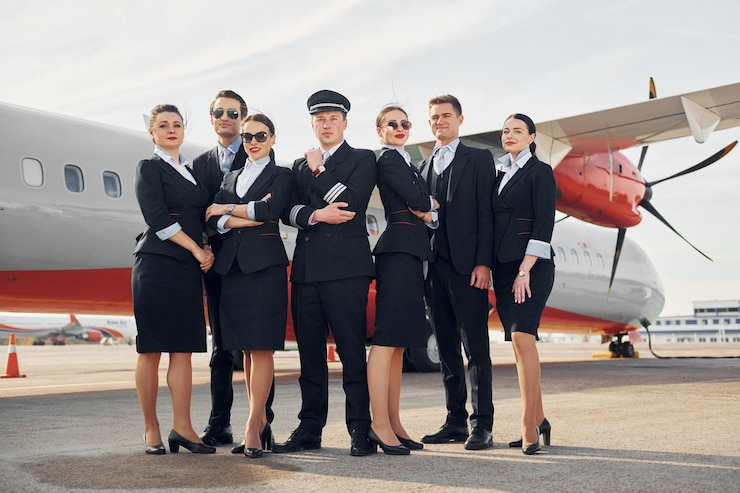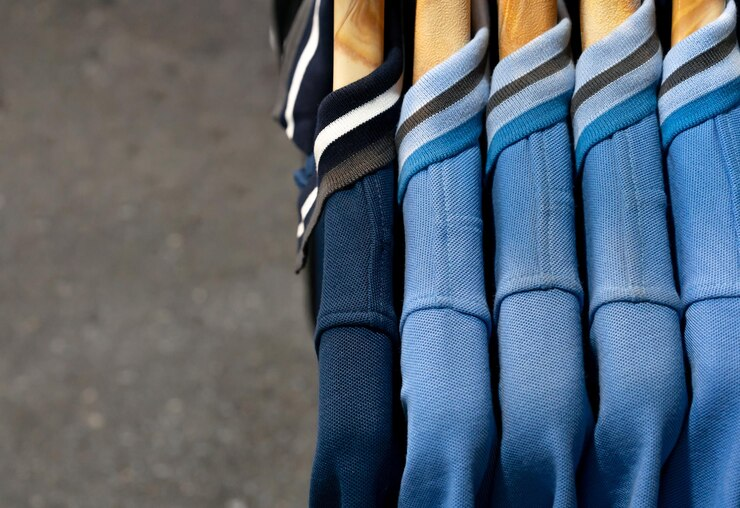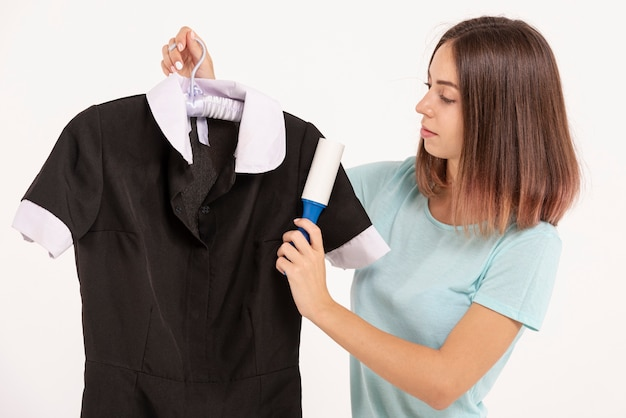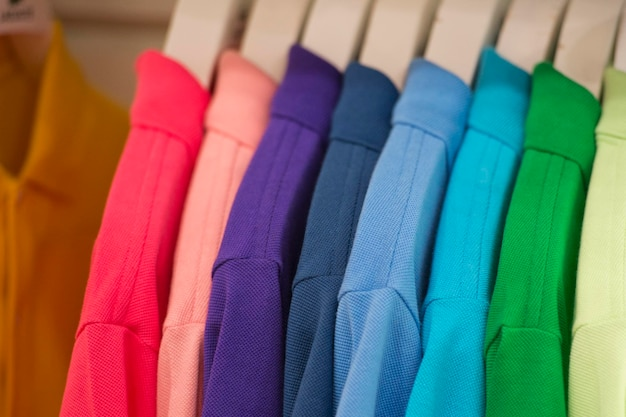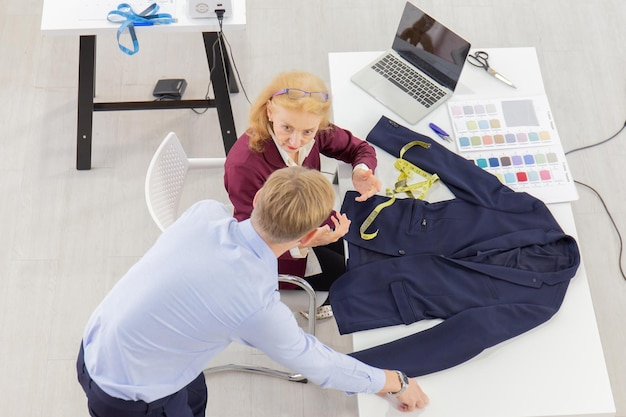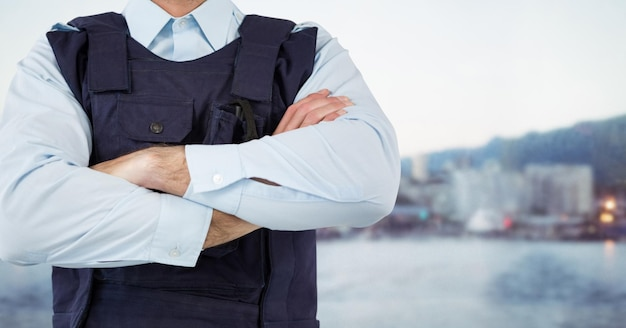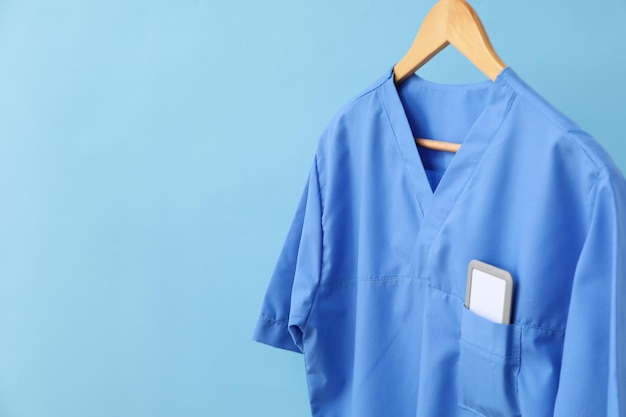What Styles of Work Uniforms Are Best for Your Business
Today's work uniforms span a great degree of variation, depending on industry needs, brand imaging, and functional needs. Whether office professionals, retail staff, or industrial workers, the right uniform can make all the difference in productivity, customer perception, and brand loyalty. This guide investigates variant uniform styles, important selection factors, and typical mistakes to avoid when making decisions about employee uniforms.

Key Factors in Choosing the Right Work Uniform Style
Material and Comfort
One of the very critical things considered when choosing the fabric for work uniforms is the type of material. For instance, employees who work in hot climates fare very well with light cotton or breathable blends, while heavy materials like wool or polyester blends might be better fitted for cold environments. Comfort levels in uniforms are directly related to employee satisfaction and productivity because employees will become distracted and dissatisfied with uncomfortable or restrictive materials.
Additionally, consider the work environment: if employees are engaged in physical tasks, you may need materials that are durable and offer some stretch for ease of movement. Moisture-wicking fabrics, for instance, are great for employees working outdoors or in high-activity roles.
Industry Requirements
Different industries call for different uniform types. Health professionals might need easy-to-clean scrubs, while construction workers require clothes oriented towards safety, like reflective jackets or flame-resistant wear. This is very key: an assessment into the specific demands your industry has will go a long way in ensuring the uniforms you choose meet the required standards for safety, aside from serving functionality to the nature of your job.
For example, uniforms designed for the hospitality industry are done in a fashion to make them look pleasing but functional for extended periods of working time; similarly, those working in logistics would look to durability with safety features of visibility from a distance and even in dim light.
Brand Image and Style
Uniforms are an extension of your brand, so their design needs to be in line with the image of your company. Businesses focused on a high level of luxury need high-end fabrics and tailored cuts, while more laid-back businesses can remain professional with simpler designs in either polo shirts or T-shirts. Your uniform should represent your business ethos, providing cohesion in all customer touchpoints.
Consider color schemes that would also reflect the brand identity. For example, for a technology company, simple black or blue layouts would be more professional, showing how innovative they can be. In comparison, a retail brand with a young focus might use fresh, vibrant colors to express energy and dynamism.
Functionality and Convenience
Work uniforms have to be more than just stylish; they have to be practical and functional, too. For those jobs that are very physically demanding, features such as extra pockets, extra seam reinforcements, and panels for stretch really make the difference. Depending on what the job demands, other uniform features may include fire retardation, water resistance, or breathability in industrial settings.
It also adds to convenience, in that uniforms are easy to care for, especially if materials are machine washable, wrinkle-resistant, and durable, which can reduce the time employees spend caring for their work attire.
Recommended Classic Styles and Their Applications
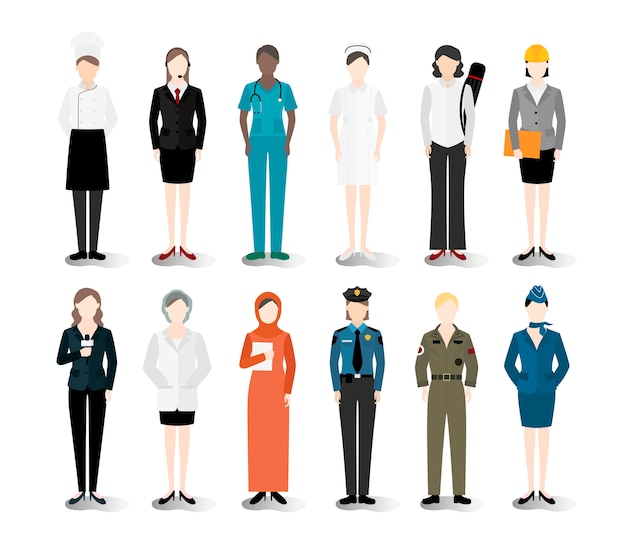
Polo Shirts and T-Shirts
These are convenient for retail, hospitality, and casual office corporate environments. Polo shirts guarantee professionalism with ease. They may be paired with jeans, khakis, or skirts depending on what workplace culture says so. T-shirts are quite excellent for casual settings. This choice is generally really a hit in technical companies or any other startups that greatly emphasize the team appearing uniformly casual.
Shirts and Suit Sets
Shirts and suit sets are perfect for businesses that need to present themselves in a very formal manner, such as financial services, law firms, or high-end hospitality. Such attire reflects professionalism and authority, therefore allowing the employees to win the trust of others. Suit sets also provide leeway with color schemes and designs to be chosen according to corporate branding.
Jackets and Work Jackets
Apparel like jackets helps protect from elements in industries like construction, logistics, or outdoor service roles while managing to keep the professional look. Work jackets may have a number of practical features that can be custom-made for your needs in several pockets, zippers, and reinforced stitching. You can also select jackets depending on the work environment for insulation, water resistance, or flame retardance.
Coveralls
Coveralls are pretty much indispensable in heavy-duty industries such as manufacturing, car repairs, and specific medical functions. They protect the wearer from top to toe, reducing the chances of exposure to harmful substances, and are very often required when working in cleanroom conditions. Coveralls are robust, designed to take serious use and abuse, hence very functional for harsh working conditions.
Windproof/Waterproof Jackets
The windproof and waterproof jackets are ideal for outdoor service industries, delivery personnel, or logistics staff who often face the roughness of weather conditions. The tendency is to become a vital piece of clothing for employees who must work outdoors, especially in variable weather conditions. Such uniforms are all about comfort, keeping your team dry and safe from rain, wind, and other elements of the weather.
The Advantages of Customized Work Uniforms – Meeting Diverse B2B Needs
Brand Identity and Unified Image
Personalized work uniforms help companies establish their brand identity through embroidery, color, or specific design features. This elevates the customer journey by ensuring that all touchpoints involving the people staff provide the same branding. In B2B companies, personalized uniforms are ways to create professionalism for client trust, especially in sectors dealing with corporate services or hospitality.
Low MOQ and Quick Delivery
For those businesses that require only small batches of uniforms, working with a low MOQ supplier is important. This allows the company to test uniform styles or provide uniforms to a very small team without committing to a full-scale production run. Furthermore, most suppliers offer quick turnaround times for custom uniform orders, helping businesses be agile in meeting their operational needs.
Functional Customization
Work uniforms can also be customized with features that cater to the specific needs of your business. It could be additional pockets for holding tools, knees that are reinforced for industrial purposes, or breathable fabrics to keep hospitality staff comfortable; functional personalization makes the uniform look good and serves a purpose. This also increases employee satisfaction and productivity even more because employees can fulfill their jobs much better in efficient attire.
Choosing the Right Work Uniform by Industry

Manufacturing
In manufacturing, durability and safety are key. Envision coveralls or work jackets in flame-resistant material with seams that are reinforced for extra protection. Reflective strips may be required so that workers can be seen in dark areas.
Service Industry
Many service industry uniforms are a balance of style and comfort. Waitstaff may be appropriately uniformed with polo shirts or button-up shirts. Durable aprons can add function and style. These uniforms need to be easy to clean and withstand frequent wear and tear.
Hospitality
In the Hospitality industry, uniforms should look formal and fashionable. Personalized suits, vests, and tailored shirts will make them look prestigious to all customers. High-quality fabrics and a great deal of attention to detail are critical to delivering upscale, polished images.
Logistics and Warehouse
Workers in logistics and warehouses need to wear special uniforms that allow for protection and comfort of movement. The addition of stretch to jackets and trousers, the availability of many pockets, and the use of moisture-wicking fabrics provide comfort and durability in very physically demanding jobs.
Common Mistakes to Avoid When Selecting Work Uniforms
Overemphasizing Cost
Though cost will always be one of the factors, opting for the lowest price often translates to long-run dissatisfaction. For example, cheaper materials may wear out much faster, thereby increasing replacement costs. It is a lot wiser to invest in good quality uniforms that are durable enough to last longer.
Ignoring Comfort
A uniform may look wonderful but is quite uncomfortable to wear. If an employee has to bear discomfort for hours together in one shift, then it will make life pretty miserable for them. Ensure that the fit is good and that comfort levels are high, which will definitely enhance the morale and productivity of the employees.
Neglecting Brand Consistency
Uniforms should reflect your brand's identity at all times. Without connecting the design of the uniform to the image of your brand, it will only lead to some form of confusion and detract from brand identity. Color, logos, and general style should be consistently used across your business in every uniform worn by an employee.
Conclusion
The ideal work uniform styles for your business require a thoughtful selection process focused on comfort, functionality, and alignment with your brand. From classic polo shirts to customized jackets, a proper uniform can enhance productivity, improve perceptions by customers, and reinforce brand identity. If you're seeking to make a positive statement, a custom uniform affords unique opportunities to supply both style and practicality. By avoiding common pitfalls and keeping specific needs in your industry, you will be sure that your employees are professional-looking and comfortable while proudly representing your brand.

.png)
